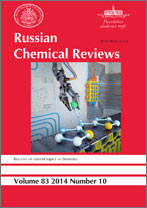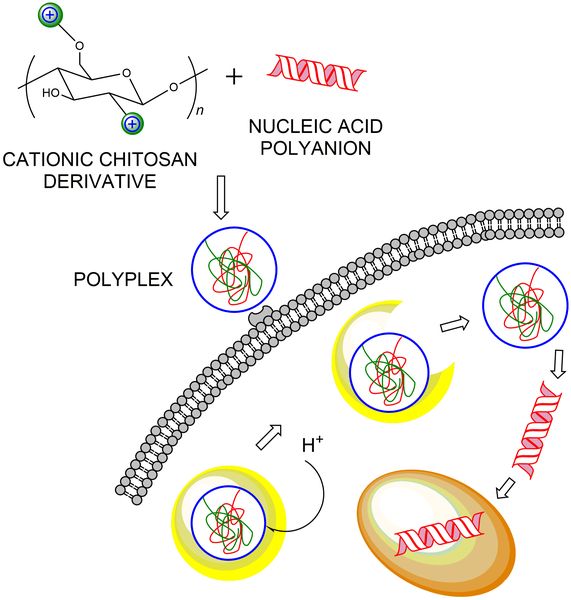|
This article is cited in 77 scientific papers (total in 77 papers)
Chitosan and its derivatives: vectors in gene therapy
A. S. Kritchenkovab, S. Andranovitšc, Yu. A. Skorikad
a Institute of Macromolecular Compounds, Russian Academy of Sciences, St. Petersburg
b St. Petersburg State University, Institute of Chemistry
c University of Vienna, Austria
d Institute of Experimental Medicine, Federal V. A. Almazov North-West Medical Research Centre, Saint Petersburg
Abstract:
The review deals with the use of chitosan and its derivatives as vectors for delivery of nucleic acids in gene therapy. Factors influencing the transfection efficiency of chitosan-based polyplexes (molecular weight, the degree of deacetylation, pH, type of chemical modification, type of transfected cells) are discussed. Particular attention is paid to methods of chemical modification of chitosan (covalent hydrophilic and hydrophobic modification and non-covalent modification), which are able to increase the transfection efficiency and to provide targeted delivery of nucleic acids.
The bibliography includes 151 references.
Received: 17.02.2016
Citation:
A. S. Kritchenkov, S. Andranovitš, Yu. A. Skorik, “Chitosan and its derivatives: vectors in gene therapy”, Russian Chem. Reviews, 86:3 (2017), 231–239
Linking options:
https://www.mathnet.ru/eng/rcr4155https://doi.org/10.1070/RCR4636 https://www.mathnet.ru/eng/rcr/v86/i3/p231
|


|






 Contact us:
Contact us: Terms of Use
Terms of Use
 Registration to the website
Registration to the website Logotypes
Logotypes








 Citation in format
Citation in format 
